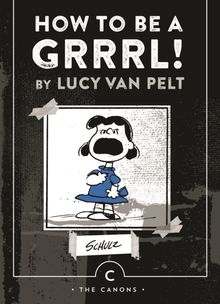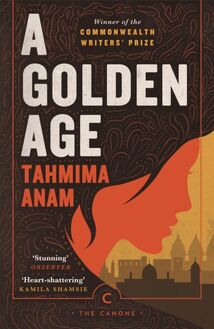Raw Shark Texts , livre ebook
247
pages
English
Ebooks
2008
Vous pourrez modifier la taille du texte de cet ouvrage
Obtenez un accès à la bibliothèque pour le consulter en ligne En savoir plus
Découvre YouScribe en t'inscrivant gratuitement
Découvre YouScribe en t'inscrivant gratuitement
247
pages
English
Ebooks
2008
Vous pourrez modifier la taille du texte de cet ouvrage
Obtenez un accès à la bibliothèque pour le consulter en ligne En savoir plus
Publié par
Date de parution
30 octobre 2008
Nombre de lectures
0
EAN13
9781847673893
Langue
English
Poids de l'ouvrage
3 Mo
Publié par
Date de parution
30 octobre 2008
Nombre de lectures
0
EAN13
9781847673893
Langue
English
Poids de l'ouvrage
3 Mo
Steven Hall is the author of The Raw Shark Texts and Maxwell’sDemon and was lead writer on the bestselling video game Battlefield1 , for which he received a Writer’s Guild nomination. His 2007debut novel, The Raw Shark Texts , won the Somerset MaughamAward and was shortlisted for the Arthur C. Clarke Award. It wasan international bestseller and has been translated into over thirtylanguages. In 2013, Hall was named as one of Granta’s Best of YoungBritish Novelists. @stevenhallbooks | steven-hall.org
Also by Steven Hall Maxwell’s Demon
The Canons edition published in 2021 by Canongate Books
First published in Great Britain in 2007 by Canongate Books Ltd, 14 High Street, Edinburgh EH1 1TE
This digital edition first published in 2008 by Canongate Books
canongate.co.uk
Copyright © Steven Hall, 2007
The right of Steven Hall to be identified as the author of this work has been asserted by him in accordance with the Copyright, Designs and Patents Act 1988
British Library Cataloguing-in-Publication Data A catalogue record for this book is available on request from the British Library
ISBN 978 1 83885 180 4 eISBN 978 1 84767 389 3 All visual text elements created by the author
For Stanley Hall 1927–1998 A gentleman and a scholar
Contents
One Chapter One: A Relic Of Something Nine-Tenths Collapsed Chapter Two: Kitchen Archaeology And Second Post Chapter Three: My Heart Was Deep Space And My Head Was Maths Chapter Four: The Light Bulb Fragment (Part One) Chapter Five: White Cloud And Blue Mountain Chapter Six: Time And The Hunter Chapter Seven: The Crypto-Zoology Of Purely Conceptual Sharks, Dictaphone Defence Systems And Light Bulb Code Cracking In Selected Letters From The First Eric Sanderson Chapter Eight: The Impressionist Two Chapter Nine: On The Trail Of Trey Fidorous – Recovered Palaeontology And Finds (Hull To Sheffield) Chapter Ten: Flotsam And Jetsam Chapter Eleven: Time’s Shrinking Little Antarctica Chapter Twelve: The Light Bulb Fragment (Part Two) Chapter Thirteen: All The Angels Come Chapter Fourteen: Mr Nobody Chapter Fifteen: Luxophage Chapter Sixteen: Ludovician Chapter Seventeen: An Invisible Eddy Of Breeze Three Chapter Eighteen: Yippy Yippy Ya Ya Yey Yey Yey Chapter Nineteen: History Sinks Downwards Chapter Twenty: The Arrangement Chapter Twenty One: Erm … Chapter Twenty Two: A Tetris-Gap Of Missing Bricks Chapter Twenty Three: Biro World Chapter Twenty Four: The Doctor Of Language Chapter Twenty Five: Hakuun And Kuzan (All The Stars Are Bleeding) Chapter Twenty Six: It’s A Poor Sort Of Memory That Only Works Backwards Chapter Twenty Seven: Who Are You Really, And What Were You Before? Chapter Twenty Eight: The Cube Of Light Chapter Twenty Nine: Orpheus And The Qwerty Code Four Chapter Thirty: Farewell And Adieu To You, Fair Spanish Ladies Chapter Thirty One: Feelings Or Whatever Chapter Thirty Two: Farewell And Adieu To You, Ladies Of Spain Chapter Thirty Three: The Light Bulb Fragment (Part Three /Encoded Section) Chapter Thirty Four: Last Stand Chapter Thirty Five: Just Like Heaven Chapter Thirty Six: Goodbye Mr Tegmark Acknowledgments Undex (Incomplete UK)
ONE
Some limited and waning memory of Herbert Ashe, an engineer of the southern railways, persists in the hotel at Adrogue, amongst the effusive honeysuckles and in the illusory depths of the mirrors .
Jorge Luis Borges
1
A Relic of Something Nine-tenths Collapsed
I was unconscious. I’d stopped breathing.
I don’t know how long it lasted, but the engines and drivers that keep the human machine functioning at a mechanical level must have trip-switched, responding to the stillness with a general systems panic. Autopilot failure – switch to emergency manual override .
This is how my life started, my second life.
My eyes slammed themselves capital O open and my neck and shoulders arched back in a huge inward heave, a single world-swallowing lung gulp of air. Litres of dry oxygen and floor dust whistled in and snagged up my throat with knifey coughing spasms. I choked and spat through heaves and gasps and coughing coughing coughing heaves. Snot ropes unwound from my nose. My eyesight melted into hot blurs over my cheeks.
The shudder-hacking violence of no air then too much knocked me dizzy, sent the floor tilting away under my fingers. Static behind my eyes bacteria-swarmed dangerously towards another blackout and, snow-blind and shaking, I pushed my wet mouth down tight into the palms of my hands, trying to pull controlled, steady breaths through my fingers –
Slowly, slowly-slowly, the world began to reappear in sickly greens and thumping purples and after maybe a minute, it steadied itself into a shaky-solid kind of balance.
I wiped my hands on my jeans and gave in to a last scratchy cough before rubbing out the last of the tears.
Okay. Just breathe, we’re okay .
I had no idea who or where I was.
This was no sudden revelation, no big shock. The thought had congealed itself under the gasping and the choking and even now, with my body coming back under control and the realisation fully formed, it didn’t bring with it any big horror or fear. Against all that physical panic it was still a small secondary concern, a minor oddity at the corner of things. What mattered most to me – a million times more than anything – was air, breath, the easy lungfuls coming and going now. The beautiful, heavenly, angel-singing fact – I could breathe and that meant I would live. Pressing my forehead down into the wet carpet, I imagined breathing mile after mile of smooth blue savannah sky as the last of the shudders worked their way out of my body.
I counted to ten then I looked up from the floor. I propped up onto my elbows and when that seemed okay, all the way up onto my knees. I was kneeling at the foot of a double bed in a bedroom. A bedroom stocked with all the ordinary, usual things. There was a wardrobe in the corner. A bedside table with a collection of water glasses of varying ages and an alarm clock with red digital numbers – 4.34 p.m., a chest of drawers cluttered with deodorant cans and lids, a tub of multivitamins and the remains of a blue toilet roll, used right down to where the paper goes wrinkly, like bath fingers. All just normal bedroom things – but I didn’t recognise any of them. None of it felt strange, but none of it was familiar either. It was all just there; unremarkable but alien stuff . The thought came that maybe I’d fallen and concussed myself, except nothing hurt. I felt around my skull to make sure, but no, nothing.
I climbed carefully up onto my feet but the new angle didn’t do anything for my memory either. And that’s when the first real stabs of worry started to land.
It isn’t all coming back to me. I don’t know any of this at all .
I felt that prickling horror, the one that comes when you realise the extent of something bad – if you’re dangerously lost or you’ve made some terrible mistake – the reality of the situation creeping in through the back of your head like a pantomime Dracula.
I did not know who I was. I did not know where I was.
That simple.
That frightening.
I clamped my teeth together and turned around on the spot, three slow visual sweeps of the bedroom, my eyes touching and exploring every ordinary incidental thing and recognising absolutely none of them. I tried the same thing mentally – closing my eyes, searching around inside my head, feeling through the black for any familiar shape. But it was all just cobwebs and shadows; I couldn’t find myself in there either.
I walked over to the bedroom window. The outside world was a long street and a facing row of terraced houses. There were regular lamp posts, irregular telegraph posts and the sounds of a distant busy road – constant car engine hum, truck bang-clatter and occasional bass box thump, but – I squashed my nose up against the glass and looked left and right – no people. It was a cloudy day, grey and edgeless. I felt edgeless too. I suddenly had an urge to rush out of the house shouting for help and running for as long as I could so someone would see me and acknowledge me as a real person and they’d call a doctor or somebody who could fit me back into my proper place, the way a clockmaker realigns all the tiny makings inside a broken watch. But I had an equally strong fear that if I did this, if I ran and shouted, no one would come, no one would see. I’d get to the end of this street only to find the traffic sounds were coming from an old tape player on the corner of an abandoned, litter-washed main road in an empty, deserted world.
No. Come on, that’s not useful . I rubbed my palm heels against my eyes, pushed down the panic and tried to clear my head. Patting down my pockets I found a wallet. I fingered through cash, receipts, bus tickets and an empty book of stamps, then – a driver’s licence.
I stared at the picture and the name on the card.
The man in the wardrobe mirror carefully touched his fingers over his thin cheeks, his nose, his mouth, his short crop of dirty brown hair. He was in his late twenties, tired, pale and a bit sickly looking. He frowned at me. I tried to read the history hidden inside the frown as he made it – what kind of person wrinkles his forehead like that? what sort of life builds up a pattern of lines like those? – but there was nothing to be seen that I could decode. The man was a stranger and his expressions were written in a language I couldn’t begin to understand. We reached out to each other and our fingertips met, mine warm and oily, his cold and smooth and made only of coloured light bouncing off glass. I drew my hand back and called the reflection by his name. And he said the same thing back, but silently, just moving his lips:
Eric Sanderson .
Eric Sanderson. When I heard myself speak it, the name sounded solid and real and good and normal














